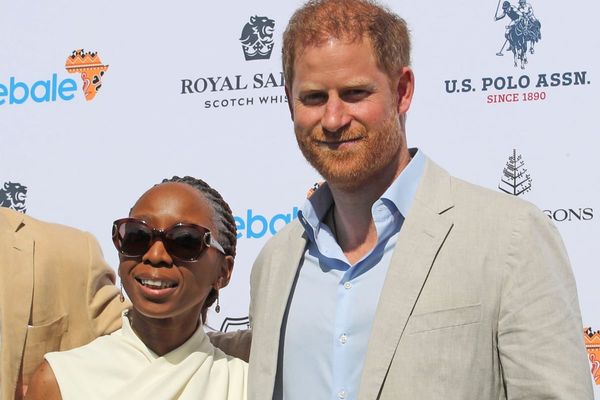
Andrea Arnold’s films have a thrilling, entirely distinctive energy. Take her US-set American Honey (2016), with its itchy, restless outlaw spirit and music used front and centre, or the earthy fervour of her 2011 version of Wuthering Heights. The British director’s films are feral, unpredictable and untameable, informed by empathy, curiosity and a way of working that embraces chaos and discovery. With its marginalised milieu and themes of the wildness within, Bird, which earned an impressive haul of British independent film award nominations last week, could only be an Andrea Arnold creation.
In some ways, though, it’s also a notable departure for this continually evolving film-maker, who returns to the UK – specifically north Kent, where she grew up and later set her short film Wasp – for her first fiction feature since American Honey. The most obvious change is the fantastical element. Having long inhabited the gritty, social realist end of the spectrum, Arnold ventures into magical realism for the first time. If, like me, you’re somewhat allergic to the genre in its more twinkly and whimsical forms, fear not: this version has teeth.
But there’s something else at play here: Bird is told from the viewpoint of 12-year-old Bailey – played by phenomenal newcomer Nykiya Adams – growing up in an unconventional family unit that borders on the dysfunctional. Her home is a freewheeling, graffiti-daubed squat shared with a teenage half-brother, Hunter (fellow non-professional Jason Buda, who combines a child’s moral certainties with an adult’s propensity for violence), and her feckless, frequently topless, extravagantly tattooed dad, Bug (Barry Keoghan, rattling against the edges of the frame in a role he was born to play). Bug is about to be married to a woman he has known for three months, in a whirlwind ceremony he plans to fund through a new business venture: selling the psychotropic skin secretions of a “drug toad”. Bailey’s mother, her violent and unpredictable new boyfriend, and Bailey’s three younger half-siblings live on the other side of a town where kids run wild and dumped mattresses are repurposed as trampolines.
On paper it sounds unremittingly bleak and despairing. In fact, Bird finds beauty and wonder in every frame (one that Arnold has slyly shaped to evoke the format and curved corners of a smartphone screen, echoing the way Bailey captures private moments of visual poetry). The film celebrates rather than judges its erratic and occasionally challenging characters It’s the closest Andrea Arnold has come to a feelgood flick.
The fantasy element comes in the form of Bird (German actor Franz Rogowski, making full use of his dancer’s physicality), a curious drifter with an exotic accent who says he used to live with his family on a local estate, and was separated from his parents as a child. Bailey is initially suspicious of this unfettered blithe spirit who sleeps perched on the roof of a nearby building. But she’s also fascinated despite herself.
Arnold shoots chronologically and doesn’t give her actors a full script: they discover the story on a day-by-day basis. Adams’s reaction – a bristling, pugnacious wariness – when she first meets Bird, in a field where she slept after a bust-up with Bug, feels unfeigned. And it mirrors the audience’s initial response: we naturally assume he’s a threat. One of Arnold’s central messages here is that not everything different is dangerous – something that applies not only to Bird as a character, but to Bug and Bailey’s unconventional lives on the periphery – lives that don’t necessarily fit society’s norms.
Who or what is Bird? A guardian angel? A figment of Bailey’s imagination? A ghost? Arnold keeps a teasing ambiguity throughout. However, if Rogowski’s unworldly, newly hatched innocence in the role hadn’t already tipped us off, a striking big swing of a scene towards the end confirms that Bird is, in some ways at least, exactly what he says he is.
And perhaps Bird and Bug aren’t so different either: both are free spirits that soar at will, and there for Bailey at the most vulnerable point of her coming-of-age journey. With its joyfully uninhibited extended final sequence, in which the camera swims boozily around Bug’s wedding reception, the film raises a glass in a final salute: loving families are unpredictable beasts that come in many shapes and forms, all of them to be celebrated.
In UK and Irish cinemas







